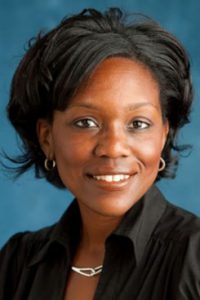But the route to a doctorate degree in the fields of science, technology, engineering and mathematics for students like McMillon, who is Black, and Della Pella, a first-generation college graduate from River Rouge, isn’t always clear cut.
“The lack of representation we’re seeing today in many of the science, technology, engineering and math fields I don’t think is due to a lack of interest or aptitude or talent,” said Trachette Jackson, professor of mathematics at the University of Michigan. “There are some well-documented and well-researched biases, inequalities and barriers that students are facing that impact their ability and desire to persist in STEM.”
A program Jackson leads called the Marjorie Lee Browne Scholars Program is trying to change that. The U-M Department of Mathematics reimagined its master’s degree program as a stepping stone to the doctorate by providing a space where students can hone their abilities in math courses. The program, named for the first African American woman to earn a Ph.D. in mathematics at U-M in 1949, also pairs faculty mentors with the students as well as providing a network of peer mentors.
“Students often want to feel a sense of belonging, but sometimes feel unwelcome when they enter STEM education,” she said. “Sometimes students experience implicit biases from peers, instructors or research advisers, and I think those kinds of things take a toll.”
The two-year Marjorie Lee Browne program admits four fully funded students per year. Thirty-eight students have completed the program since 2011. Funding comes from a 2010 National Science Foundation grant called Building Bridges, a program that highlights mentoring and community building to enhance diversity in STEM fields.
The grant aims to increase the number of students from historically underrepresented communities, including students of color and students of disadvantaged socioeconomic backgrounds. Other programs across the university include those in applied physics; business; classical studies; ecology and evolutionary biology; engineering; and molecular, cellular and developmental biology.
Click on the title link to read the full article.


